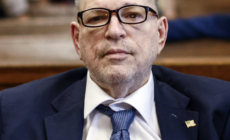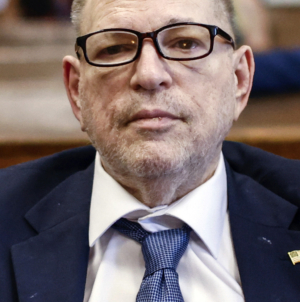-
Harvey Weinstein’s Medical Condition Takes Massive Turn - 9 mins ago
-
Dodgers’ Freddie Freeman scratched, returning to Los Angeles to be with family - 32 mins ago
-
Missing Tanker Plane Fighting Oregon Wildfire Found, Pilot Dead - 49 mins ago
-
Reds vs. Rays Highlights | MLB on FOX - about 1 hour ago
-
F1 News: Red Bull Hit With Unexpected Fines at Belgian Grand Prix - about 1 hour ago
-
Interview with Rheinmetall Hungary CEO, Paul Walf - 2 hours ago
-
Athletics vs. Angels Highlights | MLB on FOX - 2 hours ago
-
Harrison Butker’s Comments on Olympics Opening Ceremony Goes Viral - 2 hours ago
-
Rockies vs. Giants Highlights | MLB on FOX - 3 hours ago
-
Archaeologists Find Ancient Egyptian Artworks Hidden Below Nile Waters - 3 hours ago
Is There Too Much Inequality In America?
The distribution of wealth in America is grotesquely uneven. One can find in the same American city—on the same American street—individuals worth billions of dollars (more than the GDP of numerous countries) and people without a home or reliable source of food. In a country with millions of millionaires, 582,500 Americans were homeless on a single representative night in 2022.
This is as addressable as it is insane: merely redistributing 1 percent of the richest Americans’ wealth—many billions of dollars—could alleviate tremendous human suffering.
And it keeps getting worse. According to Forbes, “In 1987 … there were 140 billionaires in the world with a combined net worth of $295 billion.” But now, in 2024, there are “more billionaires than ever: 2,781 in all, 141 more than last year and 26 more than the record set in 2021. They’re richer than ever, worth $14.2 trillion in aggregate, up by $2 trillion from 2023 and $1.1 trillion above the previous record, also set in 2021.” Forbes continued, “Much of the gains come from the top 20, who added a combined $700 billion in wealth since 2023, and from the U.S., which now boasts a record 813 billionaires worth a combined $5.7 trillion.”
To put extreme inequality in perspective globally, Oxfam International explained in January 2023 that $1.7 trillion is “enough to lift two billion people out of poverty.”
Peter Dazeley/Contributor/Getty Images
That’s right. Just a fraction of the wealth of a small number of people could bring billions out of poverty.
The problem isn’t just the ultra-rich, though. As Pew Research noted, America’s upper class is getting richer as its middle class shrinks: “The growth in income in recent decades has tilted to upper-income households. At the same time, the U.S. middle class, which once comprised the clear majority of Americans, is shrinking. Thus, a greater share of the nation’s aggregate income is now going to upper-income households and the share going to middle- and lower-income households is falling. The share of American adults who live in middle-income households has decreased from 61% in 1971 to 51% in 2019.”
Moreover, America’s inequality is worse than other wealthy nations. The Gini coefficient is a common measure of a country’s inequality. It measures inequality from 0 (perfect equality) to 1 (complete inequality). According to the Organization for Economic Cooperation and Development in 2017, “The Gini coefficient in the U.S. stood at 0.434.” This number “was higher than in any other of the G-7 countries, in which the Gini ranged from 0.326 in France to 0.392 in the UK, and inching closer to the level of inequality observed in India (0.495).”
There are many drivers of this inequality. To name a few: technological automation, inherited wealth, insufficient corporate regulation, liberal trade policies, outsourced labor, a deficient tax system, and a broken public-education system.
Some inequality, however, is driven by individual choice (people opting to spend time on less-profitable activities) and work ethic (some people just work harder than others).
And, importantly, there’s nothing necessarily wrong with some people getting rich. A relatively large amount of inequality should even be encouraged. Hard work and ingenuity should be rewarded, as wealth first needs to be created before it can be redistributed. And business success stories motivate others to innovate and take risks that improve society at large. Innovation would plummet if entrepreneurs had severe caps on their income.
But an excessive, gratuitous, pathological level of inequality—like we have here in the United States—allows large-scale human suffering to go needlessly unaddressed. And, as the IMF explained, the consequences are widespread: “Growing inequality breeds social resentment and generates political instability. It also fuels populist, protectionist, and anti-globalization sentiments.”
There are many complicated public-policy questions about American society. This isn’t one of them. The same nation simply shouldn’t have a few jackpot winners worth billions of dollars, and at the same time, tens of millions struggling to get by.
William Cooper is the author of How America Works … And Why It Doesn’t.
The views expressed in this article are the writer’s own.
Uncommon Knowledge
Newsweek is committed to challenging conventional wisdom and finding connections in the search for common ground.
Newsweek is committed to challenging conventional wisdom and finding connections in the search for common ground.
Source link































